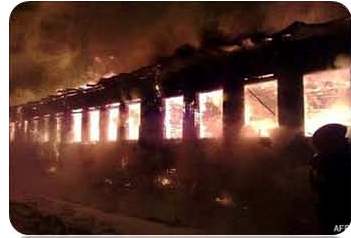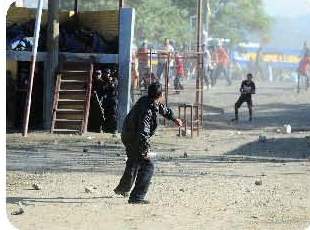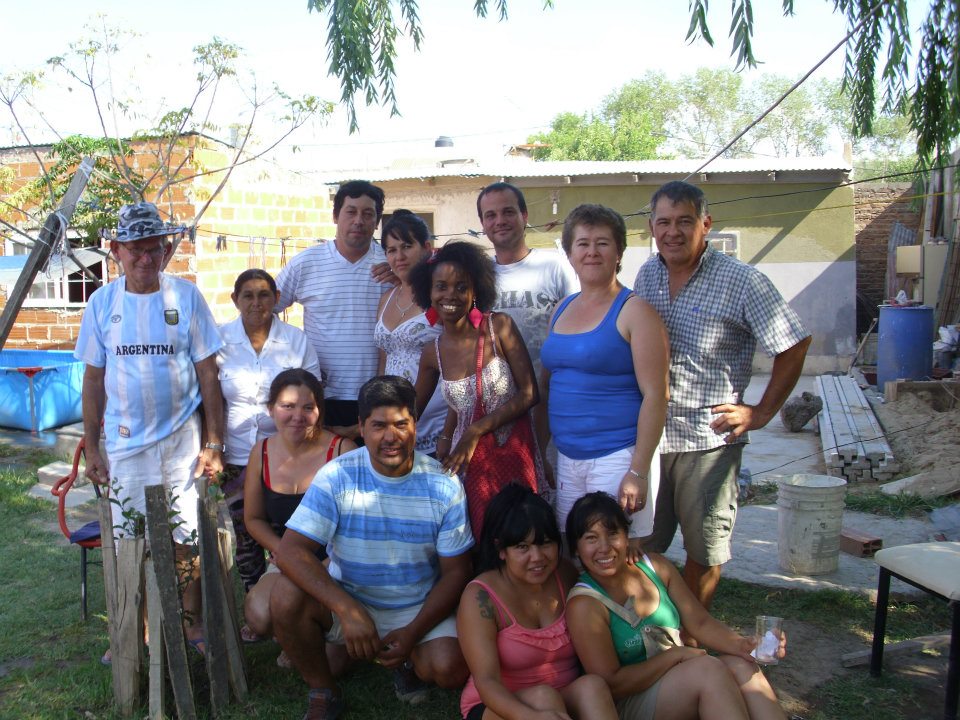Your cart is currently empty!
Blog
-
Petition: Call on the next President of the World Bank to support a 5% cap on remittances fees
I join ACORN International and the Remittance Justice Campaign in demanding that any new candidate being considered as President of the World Bank commit to aggressively making all available efforts to achieve the World Bank and G-8 goal of stopping predatory pricing of remittances and reducing maximum costs for migrant workers and immigrants to no more than 5% for remittances.
-
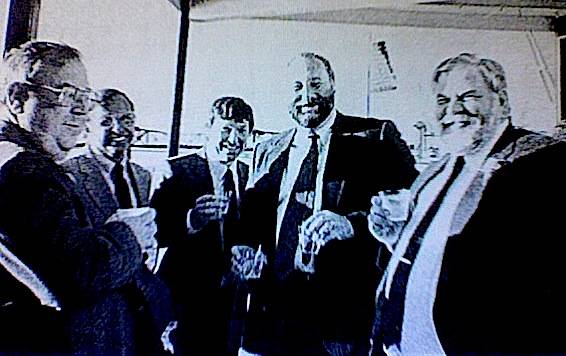
Abuses at NIKE

Nike Execs: “We’re a Fitness Company!”
Working Conditions & Struggles at NIKE Inc. in Indonesia
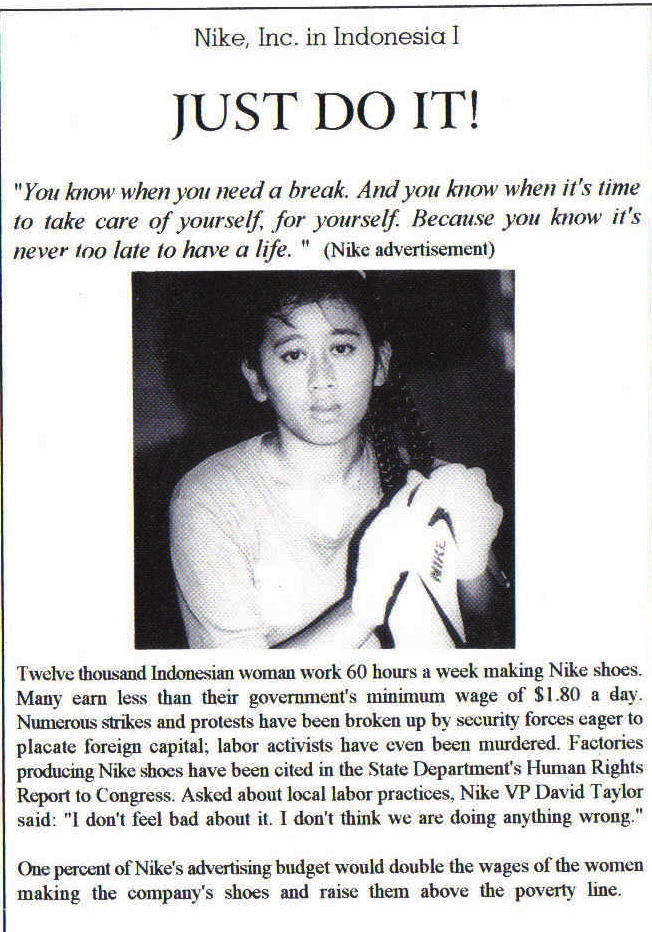
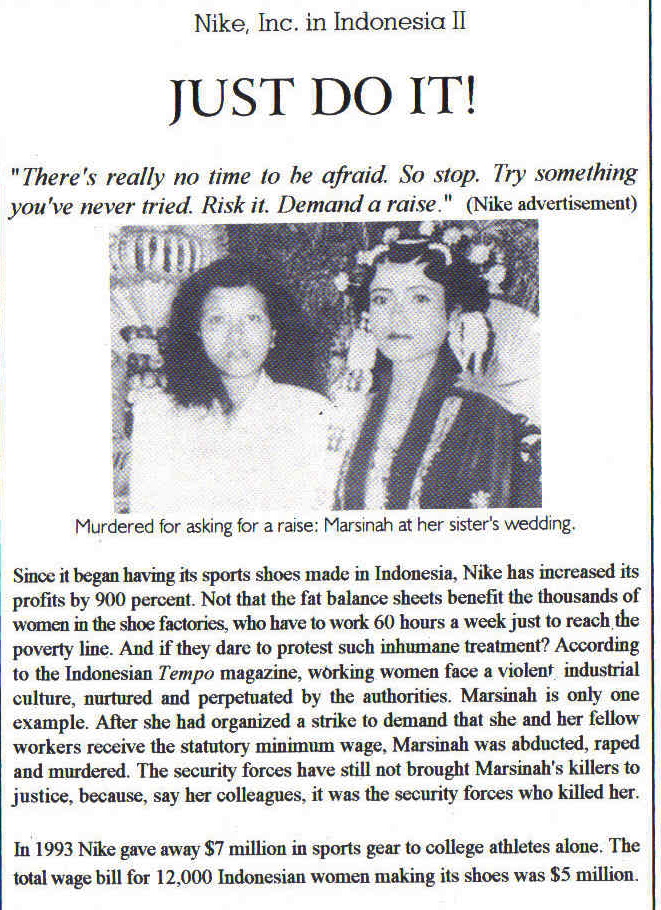

Nike Fights Trade Suit and Anti-Sweatshop Protest at the Supreme Court Click here
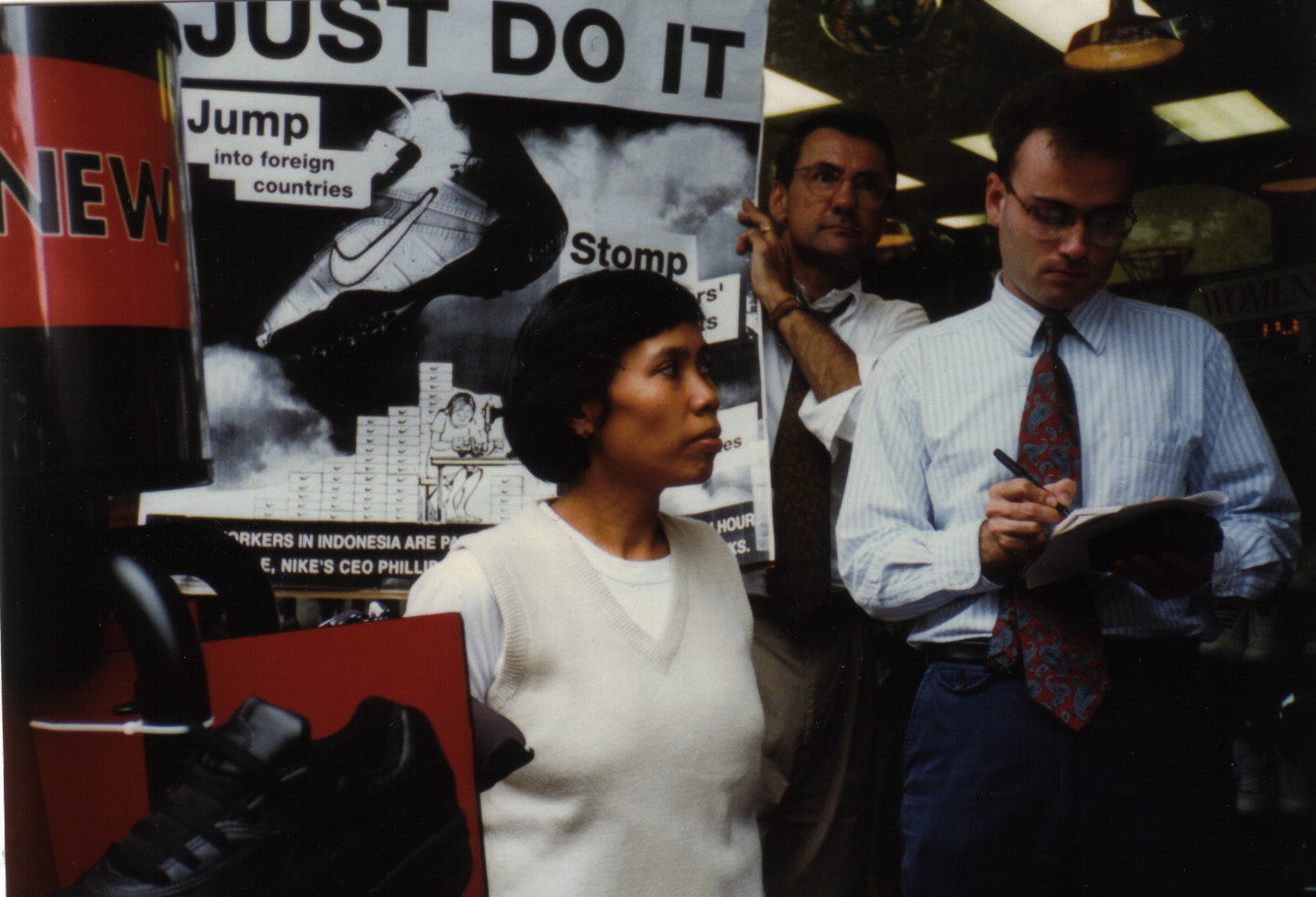
DC Protest


2006 protest in Jakarta (Nike had to shut down offices for a few days)
OUR TAX DOLLARS FOR NIKE PUBLIC RELATIONS?“Funded by a grant from the Bureau of Educational and Cultural Affairs’ SportsUnited Office at the U.S. Department of State, the exchange is part of Secretary of State Hillary Rodham Clinton’s Women’s World Cup Initiative, launched on June 6, 2011, which seeks to empower women and girls through sports.” What’s the goal? Empower girls through soccer Jun 25 | By Lindsey Emery
-
Press for Change Founder Jeff Ballinger
Reports on Sweatshop Practices around the World
Harvard International Review How Civil Society Can Help: Sweatshop Workers as Globalization Consequence
War Resisters Magazine Responsibility Is the New Justice? Student Activists Say “No!”
-
Press for Change Campaign Mission
Given the worldwide financial crisis, it is a safe bet that fighting sweatshop abuses here and abroad will not be a key policy undertaking for Barack Obama and his team. But this does not rule out a wide-ranging set of initiatives that would significantly empower workers. Tweaking our foreign assistance priorities, revising “democracy promotion,” and undertaking diplomacy from a community organizer’s perspective—these changes in U.S. policy would at least begin an assault on global sweatshop practices. And they are especially important as an antidote to the solipsism of Corporate Social Responsibility (CSR), wherein corporate “self-regulation” teams are rebranded as “activists” by lazy and compliant media. The new administration needs to connect with real labor activists, in Asia and Central America especially, and allow them to speak for themselves.
But first we need to collect information on sweatshop practices abroad and make it available to activists, who often can’t collect it themselves.
Discussion: finding an anti-sweatshop strategy that works
-
5W, 20/2/2012
Wade Rathke a Roma con la Fondazione Italia Usa, per le famiglie a basso reddito
20/2/2012ROMA – La Fondazione Italia USA, rappresentata dal presidente senatore Lucio D’Ubaldo, ha incontrato a Roma Wade Rathke, fondatore di ACORN – Association of Community Organizations for Reform Now, e direttore della rivista “Social Policy”. ACORN è una organizzazione americana non governativa fondata nel 1970, che ha tra gli scopi il sostegno delle famiglie a medio e basso reddito, in particolare in settori come l’iscrizione alle liste elettorali, l’assistenza sanitaria, l’accessibilità di alloggi a prezzi contenuti e altre questioni sociali. L’associazione ha oltre 500 mila iscritti ed è presente in più di 100 città degli Stati Uniti.
La Fondazione Italia USA nasce per testimoniare l’amicizia tra gli italiani e il popolo americano ed intende svolgere un ruolo pubblico con carattere apartitico al di qua e al di là dell’Atlantico. L’Ambasciata degli Stati Uniti a Roma ha partecipato ufficialmente all’atto costitutivo della Fondazione, rappresentata dal ministro consigliere per gli affari pubblici. -
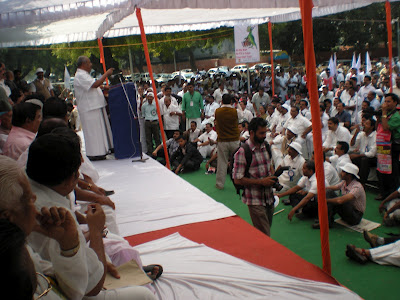
Delhi March Against Modifications of FDI in Retail
Tens of thousands of small retailers protested against FDI in Retail and FTA under the banner of Bhartiya Udyog Vyapar Mandal. More than 10,000 traders from Kerala belonging to the Kerala Vyapari Vyavasayi Ekopana Samithi led from the front. Protestors were arrested by the Parliament Street Police Station.


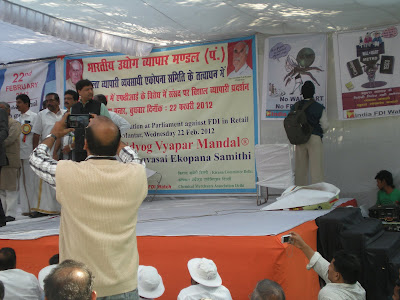
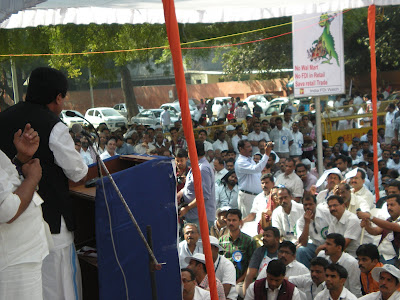
Click for Press Release
News Coverage of the event.
-
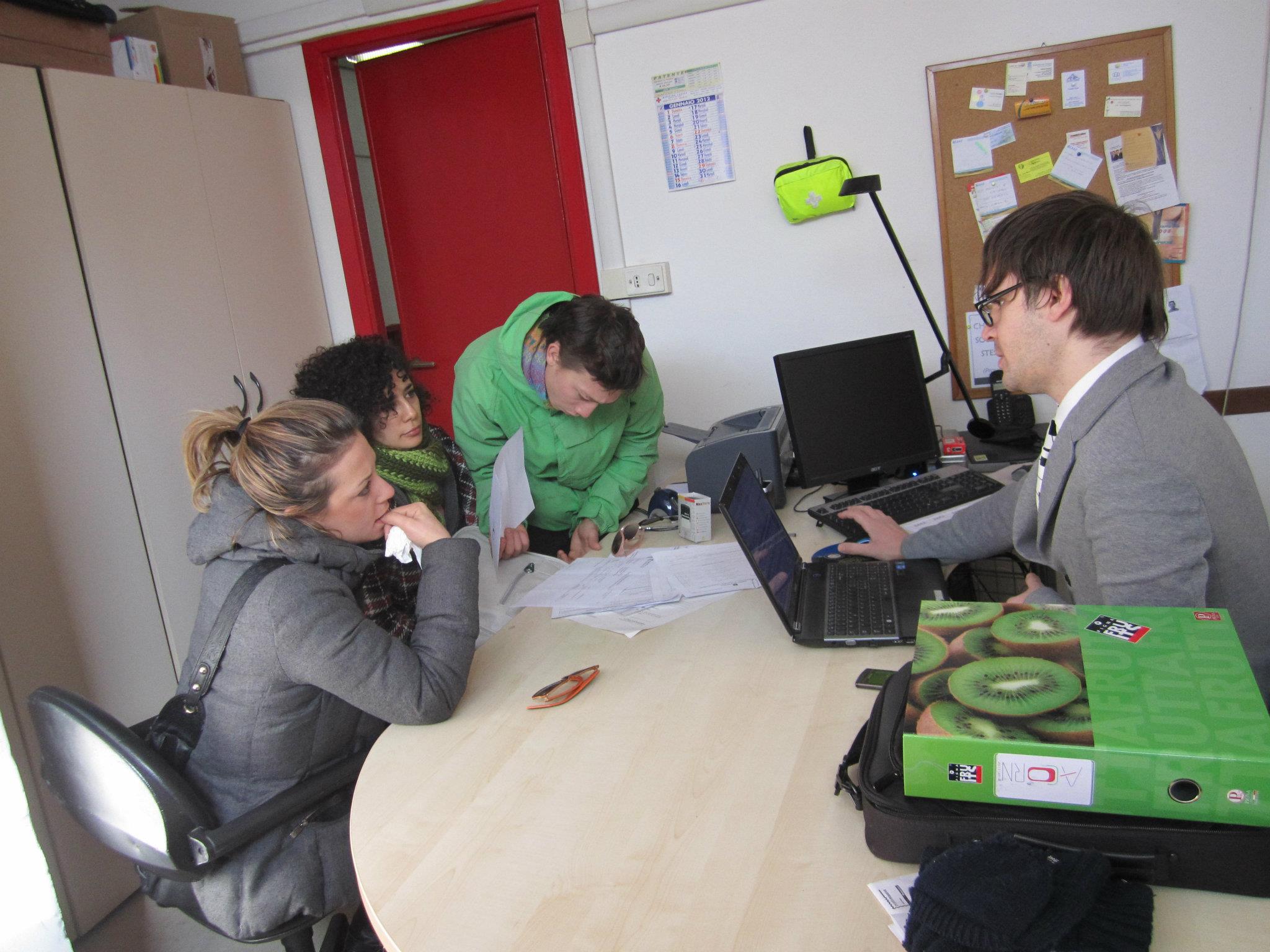
Attivismo

Nuovi associati ad ACORN Italy prendono le informazioni per registrare il loro affitto
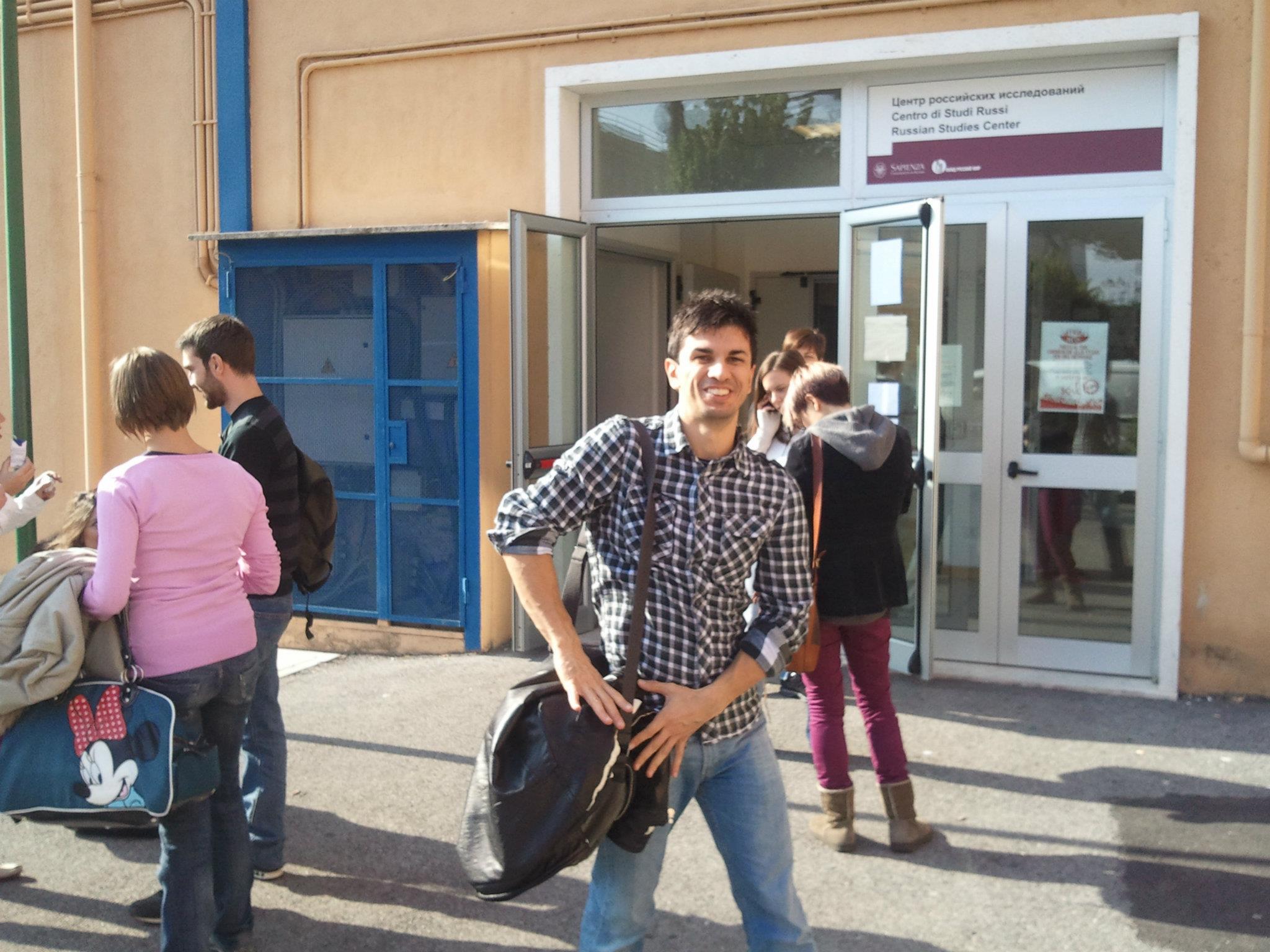
Campagna di ACORN Italy alla “Sapienza – Università di Roma“
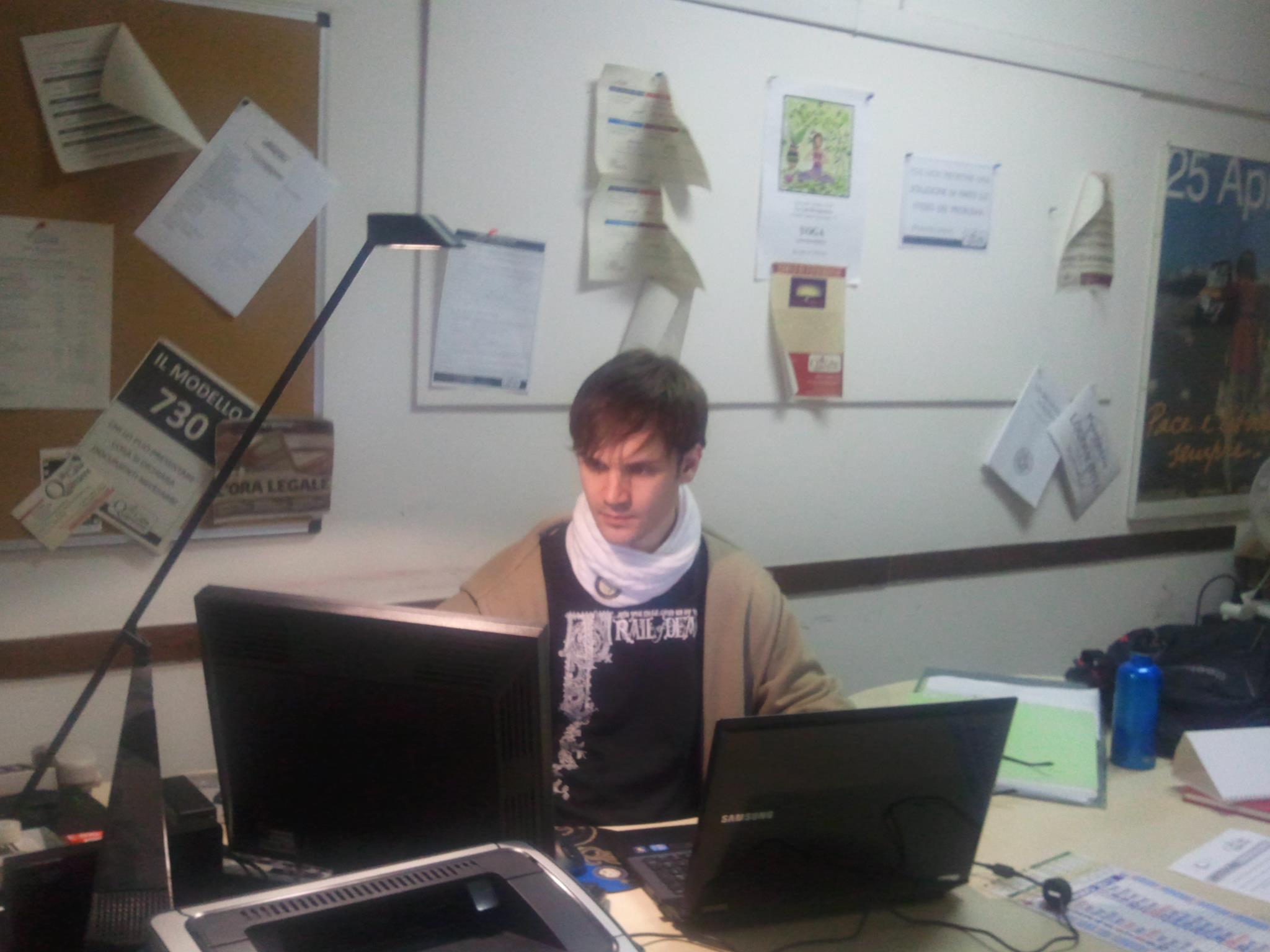
Al lavoro alla sede nazionale di ACORN Italy
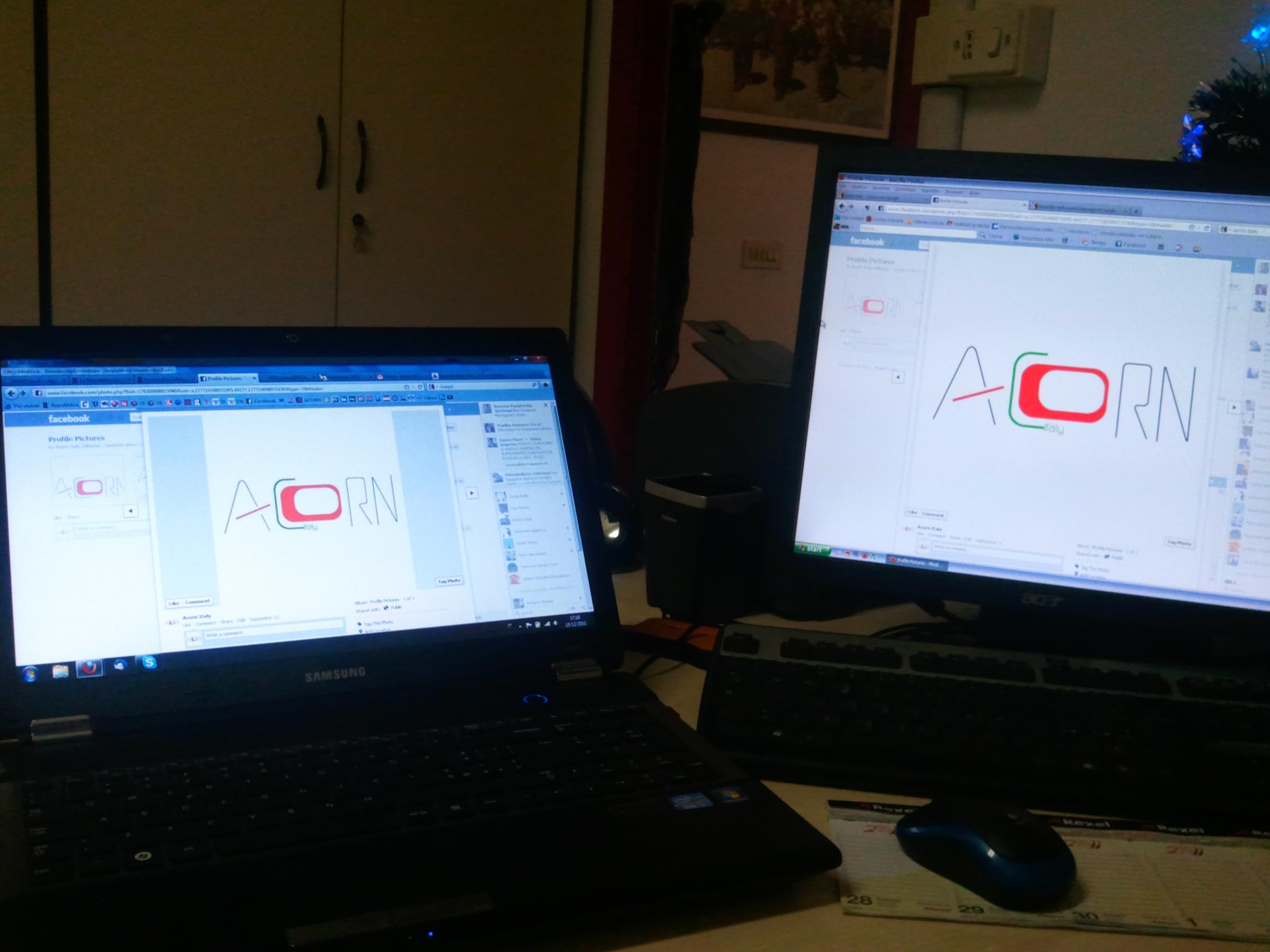
Tecnologia al servizio del Cittadino
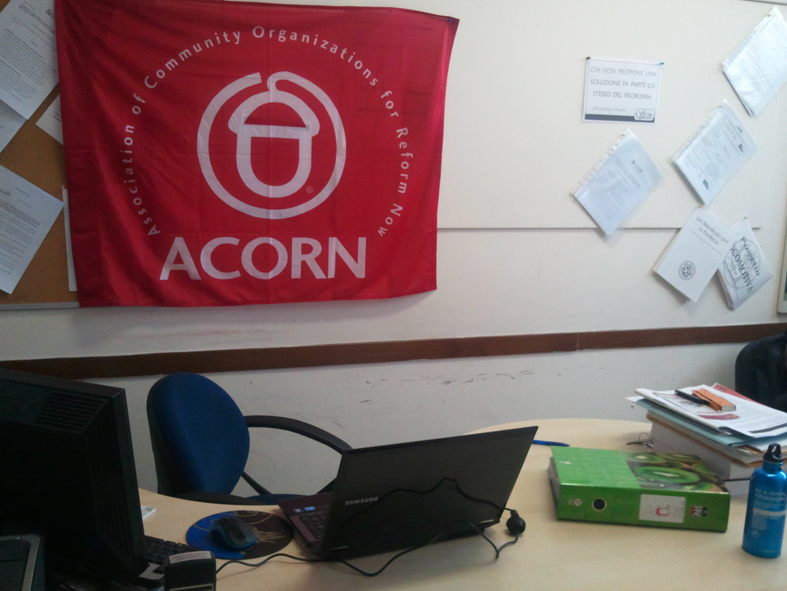
Gli uffici di ACORN Italy
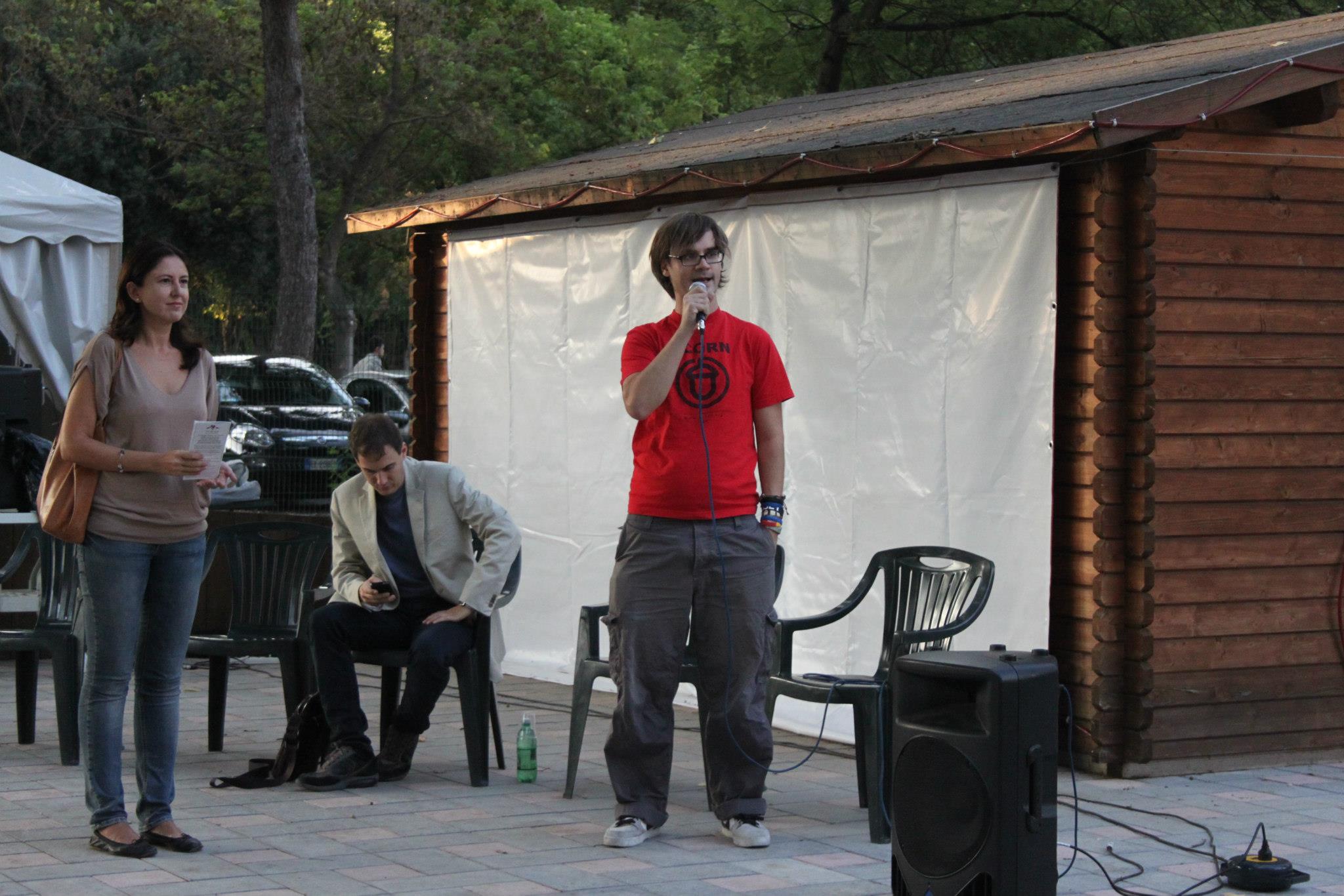
Il Presidente, David Tozzo, parla al pubblico
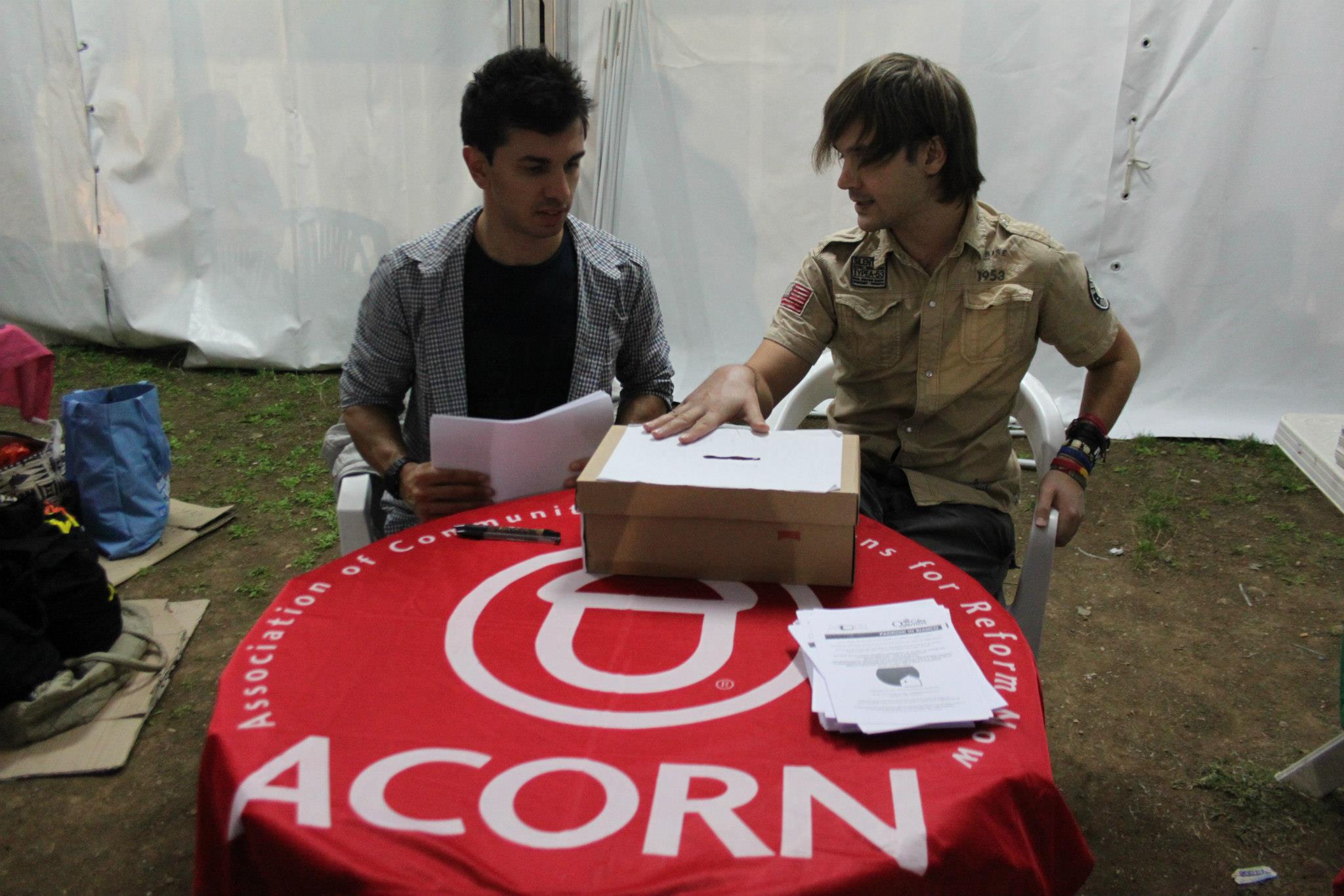
Stand di ACORN ad una Festa Democratica
-
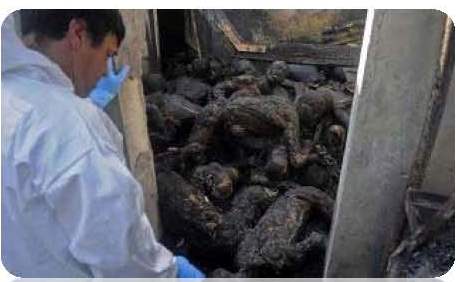
ACORN International Tegucigalpa Calls for Investigation into Penitentiary Massacre
Ante la catástrofe ocurrida el día 15 de febrero en las instalaciones del Centro Penal de Comayagua, un incendio de grandes magnitudes y sin ninguna explicación de lo ocurrido don de han fallecido más de 350 hombres y 4 mujeres en un hecho sin precedentes en la historia del mundo, queda claro que el sistema penitenciario en Honduras sufre de una decadencia de mas de 50 años, ya que las instalaciones carecen de las condiciones necesarias para la convivencia de los privados de libertad, así mismo no cuenta con un efectivo plan de rehabilitación y de reinserción social.Por lo tanto declaramos lo siguiente:
1. Exigimos al gobierno de Honduras la investigación y la deducción de toda responsabilidad a los culpables de esta MASACRE en el Centro Penal de Comayagua.
2. Demandamos una transparencia en la practica de autopsia para la verificación de las verdaderas razones de muertes, ya que se presento un video donde se demuestra que hubo disparos y ahora de desconoce si fueron asesinados antes de ser calcinados.
3. Demandamos la indemnización a todas las familias que perdieron sus parientes ya que en su mayoría son familias de escasos recursos, así mismo todos los gastos para los actos fúnebres.
4. Denunciamos que ante los hechos las familias al enterarse de lo ocurrido llegaron al lugar donde las autoridades NO brindaron información y fueron REPRIMIDOS Y REPRIMIDAS con una bomba de gas lacrimógeno, golpeada y golpeada impidiendo el acceso a información.
5. Que ante las denuncias de los sobrevivientes y familiares hacia la policía penitenciara sobre su falta de actuación durante el siniestro, EXIGIMOS la investigación de las mismas, y la protección de la vida de todos los denunciantes.
6. Solicitamos la investigación del Director del Centro Penal de Comayagua.
7. Exigimos a la COMUNIDAD INTERNACIONAL, ORGANISMOS INTERNACIONALES, la investigación de este caso ya que viola todos los convenios internacionales firmados por el ESTADO DE HONDURAS.

